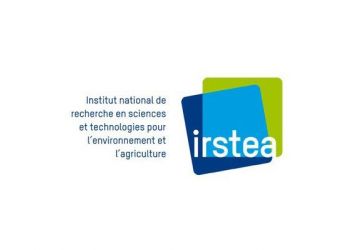Evenement
International Symposium "Mountain regions, territories of innovation"
Cité des Territoires - Université Grenoble-Alpes
Du 11/01/2017 au 13/01/2017
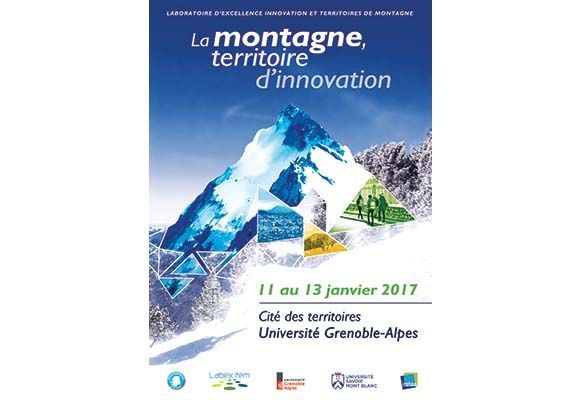
What does the future hold for mountain regions, bearing in mind that they are first in line faced with changes in climate and in the relationships between societies and nature? New opportunities are opening up in the midst of today's diversity of aspirations and the resource crisis. Transitions, alternatives, reproduction, normalisation, marginalisation: these multiple paths cannot merely be reduced to crisis philosophies or trivialisation. Rather, they prompt us to observe how the endogenous and exogenous processes of change and adaptation are transforming mountain regions, from the perspective of both the environment and that of organisations, or in terms of meanings and symbolic values: what role in innovation at the local and regional levels (and their links)? Which meanings and visions of the mountain are at issue in the light of change? And what kind of territories emerge from these transitions? Mid-way through an extensive multidisciplinary research programme, LabEx Innovation and Mountain Territories seeks to explore and debate these questionings, and to open its fields of study and its topics to a theoretical and empirical confrontation. Indeed, beyond merely having knowledge about the dynamics of these unique sites, at issue is understanding what they tell us about the spatial aspect of change processes.
By federating research conducted on mountain regions in human and social sciences within the Grenoble-Alpes University Community, LabEx ITEM's project is to conduct a social, economic and cultural analysis of innovation in this specific territorial context. In terms of socio-economic issues, mountain regions have long been considered as territories in difficulty, isolated from development clusters and thus requiring compensatory policies. They are currently experiencing a dual development, with highly attractive areas that require regulation on the one hand, and socially vulnerable areas affected by economic difficulties on the other. The mountain region thus lends itself to an investigation into its capacity for generating fresh impetus to recover from a crisis, or mobilising new resources in today's post-industrial environment.
The attractiveness of mountain regions hinges on their facilities and environmental specificities, which place them at the crossroads of new tourist, residential and ecological demands. Environmental quality appears to represent a resource which, when linked to a fragile environment, requires the introduction of specific forms of regulation and suitable governance. Mountain regions are therefore at the forefront of the implementation of sustainable societies, economies and politics.
In terms of climate issues, mountain regions are particularly exposed to the effects of global warming and the uncertainties of strong variations in rainfall patterns. Often driven solely by tourism, the mountain's economy creates or increases the vulnerability of certain regions, whatever the season. The specificities of the natural environment may increase risks associated with climate change, not only for the inhabitants, but also for the surrounding regions: flooding, landslides, glacial melting, etc. As such, the mountain region represents both a change observatory, and a possible demonstrator of preventive, protective or corrective measures.
In terms of international issues, mountain regions are a subject recognised by political communities and scientific bodies: International Year of Mountains (2002), Alpine Convention, citizen networks (CIPRA), cooperation programmes (Interreg Alpine Space), “mountain” policies and laws, etc. This political construction now benefits from fresh impetus via the macro-regional strategy, which places mountain regions at the heart of political and territorial concerns that present a major challenge for the future of Europe: regional restructuring in a context of sustainability, governance of intermediate levels, linkage between urban hubs/natural spaces, north-south routes, definition of joint assets, construction of cross-border territorial identities, etc.
The diversity and breadth of the scientific, environmental, political, social and economic issues lead us to approach the mountain as a laboratory area, where societal problems with a global dimension are particularly acute.
The question of innovation in its territorial dimension – key for LabEx – is broached in order to grasp the processes of change and adjustment by crossing the long and short term in a multi-scale approach, where ecological, economic and social systems are interdependent.
Goals of the symposium:
- Understanding and shedding light on the development trajectories of mountain territories in a context of transition. This infers a wide field of questions on adaptation to change, historically and with regard to global change, over the long and short term. Papers may thus highlight the diversity of the forms of response and transformation, and provide greater knowledge of change mechanisms and processes, particularly in their territorial dimensions.
- The weight of territorial factors. The different types of innovation may be questioned in terms of the mountain resources whose value they enhance, and their local impacts. This may lead to a comparison with other peripheral situations in order to analyse their context and dynamics, particularly in terms of specific forms of employment such as multi-jobbing.
- The local-global relationship in its political or cultural dimensions. The mountain region's place and role in innovation can be considered in the power relationship between endogenous and exogenous dynamics. In the past, we have seen that local innovations have often been refuted or exploited, and that contributions considered as being modern (tourism, industry) have been thought of as exogenous by diminishing the endogenous contributions. This in turn has fostered interpretations in terms of dominance and cultural integration. The hypothesis of the innovative mountain region thus requires us to cast a fresh look at the past in order to demonstrate its originality and allow complex forms of blending to emerge, or conversely, to interpret local changes through the spatial and cultural inequalities that they produce.
- In this same vein, the question of change concerns territorial restructuring. Global transitions, often interpreted as a loss of singularity, lead us to question the issues or values that form the common thread between cities and mountain regions, and the tools and institutions that help to manage inter-relational spaces and inter-territoriality. This questioning can be extended to the mountain region's overall social and political status.
- We can observe developments at the Alpine Arc level that go beyond former national fragmentations or contemporary urban fragmentations. “Mountainness” and “alpinity” provide a basis for mobilisation around diverse and uncertain issues, from sectoral stakeholder networks and citizen advocate networks to the macro-regional strategy in place. This build-up and this institutional innovation must be analysed in terms of their different methods and dynamics.
- We can also observe internal specialisation processes (which, although hardly new, are being reconstructed) between areas dedicated to nature, tourist areas with a high economic development potential, and “low-amenity” areas: what then remains of rural and pastoral life? Is a new vulnerability map unfolding based on wealth “spots” which attract/generate a new form of precariousness, valleys that offer refuge and opportunities to marginalised populations, and sparsely populated areas characterised by their ageing population?
- The emergence of a new development paradigm based on the energy and ecological transition or the “third industrial revolution” (J. Rifkin) questions the assets and resources of mountain regions in this emerging model. Recreational activities, the residential economy, ecosystem services and new forms of multi-jobbing are opening up new avenues for the creation of value, but, by the same token, account for new interpretations of the value of spaces. The vulnerability of this space along with its emblematic value create a sense of urgency that commands attention. Problems in terms of mobility, habitat and energy, and risks are thus particularly prominent in this context. Do these phenomena reflect new cultural and economic relationships with the environment that could make it a hotbed of innovation? Under what conditions? And with what societal impacts?
The question of mountain specificity looms in the background behind these different points. Is this relationship with the environment special in terms of constraints, vulnerabilities or resources? The diverse possible responses involve the status of mountain regions in this changing society: can this former peripheral area become an area of alternative development? This position engages the territoriality of individuals and societies, real or imagined, ideological or emotional. Mountain specificity also harks back to the natural environment: does climate change take on a particular form in this context? Does it have a greater impact on peripheral areas given the phenomena associated with slopes, gravity or water movement? Could the public interest which the mountain represents in this instance turn into a global threat for downstream regions?
Workshops and thematic sessions are open to further explore certain issues. They are not exclusive; proposals for papers may or may not be featured.
List of thematic sessions:
- S1: Social transitions. Practices and resources in changes
- S2: Valley floors and high-altitude areas: reinterpreting territorial construction and land value dynamics
- S3: Transformative social innovations in mountain territories
- S4: Territorial labelling: holding onto heritage and innovating? Putting "distinction" to the test of time
- S5: Protected mountain areas: territories as an interface between science and management
- S6: Mountains and Metropolis, reciprocal peripheral resources?
- S7: Winter sports resorts. What dynamics between globalisation and territorialisation?
- S8: Representing mountain regions. Images and maps to influence the territories
- S9: Sport and tourism in mountain facing the challenges of socio-economic, climatic and technological changes
Organisational committee:
Marie-Christine Fourny, LabEx ITEM's lead scientist ; Malek Bouhaouala ; Philippe Bourdeau ; Arnaud Cosson (IRSTEA UR DTM), Christophe Gauchon (EDYTEM), Anne-Marie Granet-Abisset (LARHRA Grenoble), Amina Chbani ; Vincent Rauzier ; Stéphanie Rouanet ; Sophie Tocreau
Program
Institutions partenaires
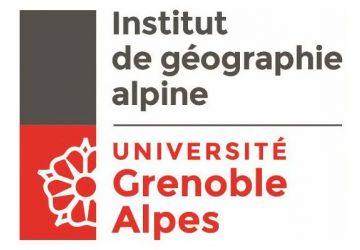
Institut de Géographie Alpine
Partenariat
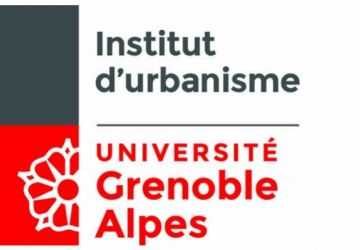
Institut d'Urbanisme de Grenoble
Partenariat
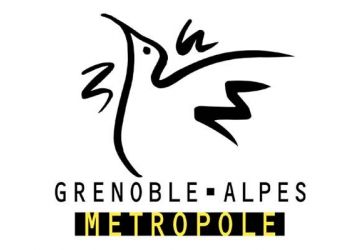
Grenoble-Alpes Métropole
Partenariat
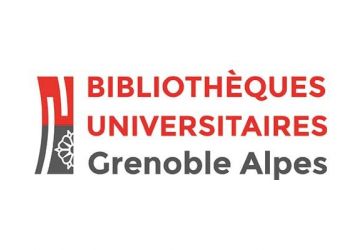
Bibliothèques Universitaires Grenoble Alpes
Partenariat
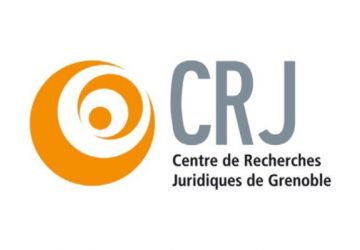
Centre de Recherches Juridiques de Grenoble (EA 1865)
Partenariat scientifique
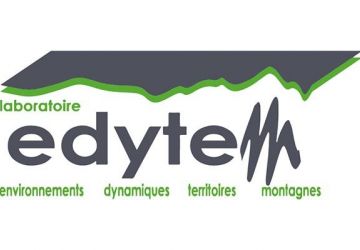
Environnements, Dynamiques et Territoires de la Montagne (UMR 5204)
Partenariat scientifique
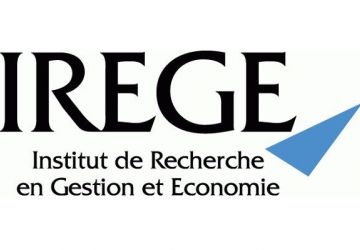
Institut de Recherche en Gestion et Economie (EA2426)
Partenariat scientifique

Juristourisme
Partenariat
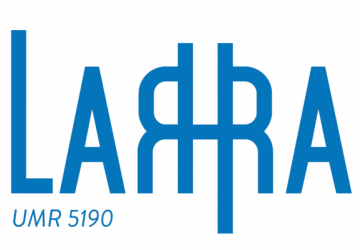
LAboratoire de Recherche Historique Rhône-Alpes (UMR CNRS 5190)
Partenariat scientifique
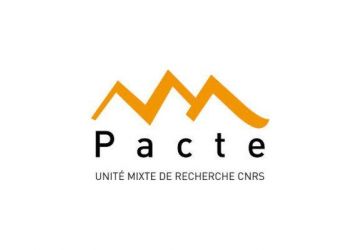
Politiques Publiques – Action politique – Territoires (UMR 5194)
Partenariat scientifique

Laboratoire Sport et ENvironnement Social (EA 3742)
Partenariat scientifique

Presses Universitaires de Grenoble
Partenariat
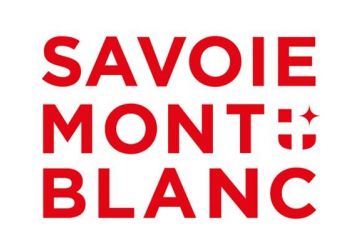
Savoie Mont Blanc
Partenariat

 Facebook
Facebook Forward
Forward Google+
Google+ LinkedIn
LinkedIn Twitter
Twitter